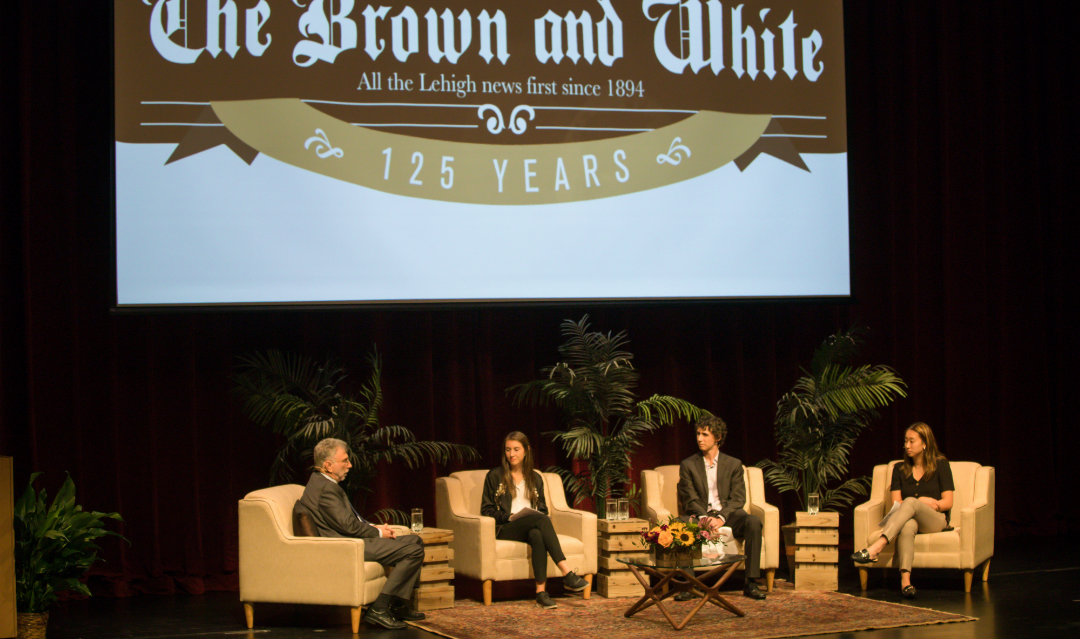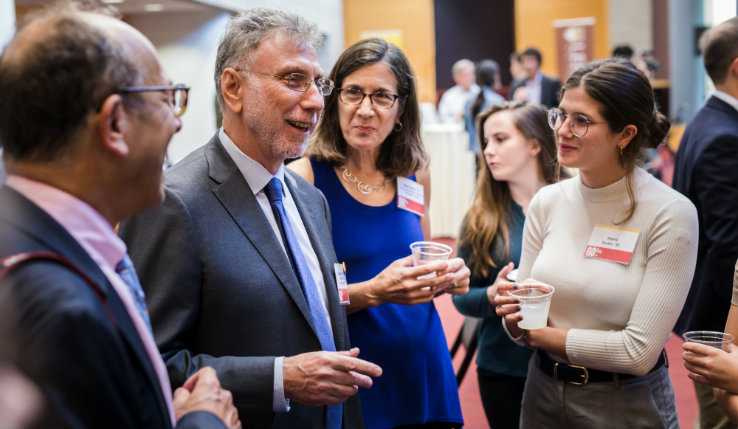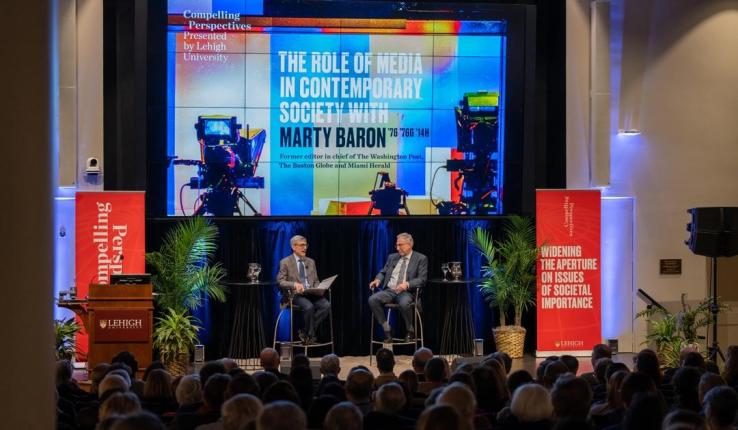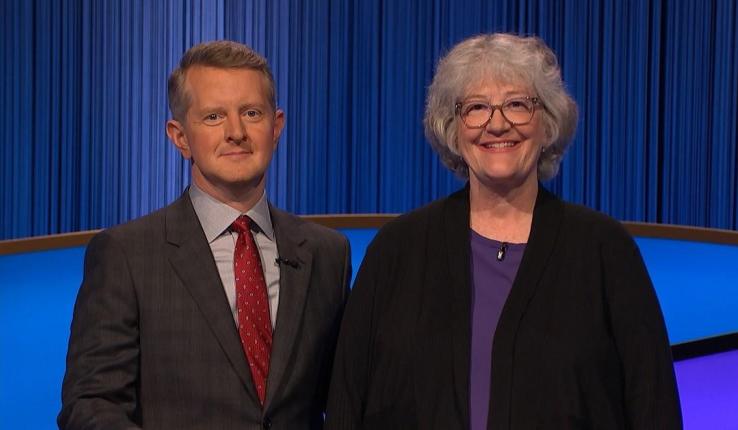Matt Veto, professor of practice in journalism and communication and faculty adviser to The Brown and White, welcomed the many Brown and White alumni in attendance back to campus, while also explaining the newspaper’s start, evolution and future.
He thanked the audience for their support of student journalism, and specifically The Brown and White alumni for their legacy.
“Having you here tonight serves as a reminder to our future leaders that we all started somewhere,” Veto said. “And for the many alumni gathered here tonight, that somewhere was right here.”
President John D. Simon, who spoke about the impact Brown and White alumni have had at newspapers, magazines, television stations, marketing firms, law firms, Wall Street, Silicon Valley and the United Nations, mentioned Baron as one of those alumni. Simon listed Baron's credentials, including his time on The Brown and White, where he served as a reporter, news editor, associate editor and editor-in-chief, while earning an undergraduate degree in journalism with honors and his MBA degree simultaneously.
“It is no wonder that in journalism circles and beyond, Marty has become the best news editor of all time,” Simon said.
Although Baron did not officially decide on his path until he arrived at Lehigh, he was introduced to journalism long before he stepped foot on the Bethlehem campus. Growing up in a family that had immigrated to the United States from Israel, Baron said reading a newspaper, receiving a national news magazine and watching local and national television news nightly was part of the culture in his household. He was greatly influenced by his parents, who were very interested in not only learning about what was going on in their new country, but also what was happening around the world.
The day’s news of Congress wrangling with issues of impeachment prompted the most timely question of the evening. Wolman inquired how one covers presidential impeachment, which allowed Baron to give insight into The Washington Post’s approach.
After expressing pride in his newsroom’s coverage, Baron said it’s important to “get to the truth of the matter,” which has many different aspects.
“First of all, what did the president do and what are the laws covering that?” Baron asked. “As much as what are the laws, but what are the responsibilities of a president? What constitutes an abuse of power? So there may not be any permeable statues but does it constitute abuse of power? Who are the witnesses? Track down those witnesses, talk to those witnesses, find out what else is there. One thing that you learn in journalism is a one instance, there's probably not one instance. There's probably multiple instances. And so you look for the pattern.”
Baron described the vast amount of resources they have dedicated to covering impeachment, reporting on it from every angle, both overseas and domestically, including their national security staff, investigative team and political team.
Baron also was asked about “fake news,” specifically how readers can figure out what is legitimate news. Baron said he hates the phrase “fake news” because it was devised for political reasons.
“Fake news is not ‘somebody made a mistake,’” Baron said. “It's not that we were human and we didn't report perfectly all the time. That's not fake news. … There are these pulses that have spread, and mostly they're spread by a lot of people who actually use the term fake news.”
Baron said the challenge is counteracting that because people believe what they want to believe and they gravitate to sources that reinforce their beliefs. To fight claims against legitimate news, Baron said the media has to show people stereotypes—such as newsrooms are only filled with people from the East Coast who went to elite schools—aren’t true.
For example, he said, The Washington Post’s newsroom includes combat veterans who served in Iraq and Afghanistan, evangelical college graduates and people raised on farms. He also believes the media needs to be more transparent about how journalists go about their work by showing the public the documents they used for their stories. And finally, he said their stories must also connect with ordinary readers. It’s important for people to see the newspaper is not very far removed for them and their lives are reflected on the paper’s pages and website.
When asked if certain topics in today’s society aren’t getting enough coverage, Baron replied that it was tough to answer, since if he identified those stories that needed to be told, he would assign them. But in general, he said, all subjects are not covered enough, except politics.
“Politics is covered plenty, there’s no question about that,” Baron said.
He said it’s important for institutions such as The Washington Post to cover ordinary people who are struggling in their lives. Baron said those institutions need to have a presence in the center of the country and in urban areas, writing about the issues and concerns present.
The Brown and White editors also asked Baron about his personal experiences, including those as a young reporter. He admitted he was unsure of himself to start, and not always very good.
“At times, I look back, and I said, ‘Yeah, I really was terrible.’”
Baron said he kept all the early stories he wrote, even after he left Lehigh, but eventually the volume got to be too much.
“I looked back at some and I said, ‘These were so bad I have no idea why I would save these things,’” Baron said. “So I quickly tossed them before anybody else could possibly see them.”
After the editors asked their final question, Baron said how gratifying it was to see journalism being celebrated and the large crowd that included friends and former colleagues.
Then Jack Lule, professor and chair of the department of journalism and communication, took the stage and surprised Baron with a relic of his early journalism days—a framed copy of his first byline in The Brown and White.
“He gets a lot of awards but he’s only going to get one like this,” Lule said.
“I talked about all the bad stories I wrote and you gave me one,” Baron joked. “Heartwarming.”






